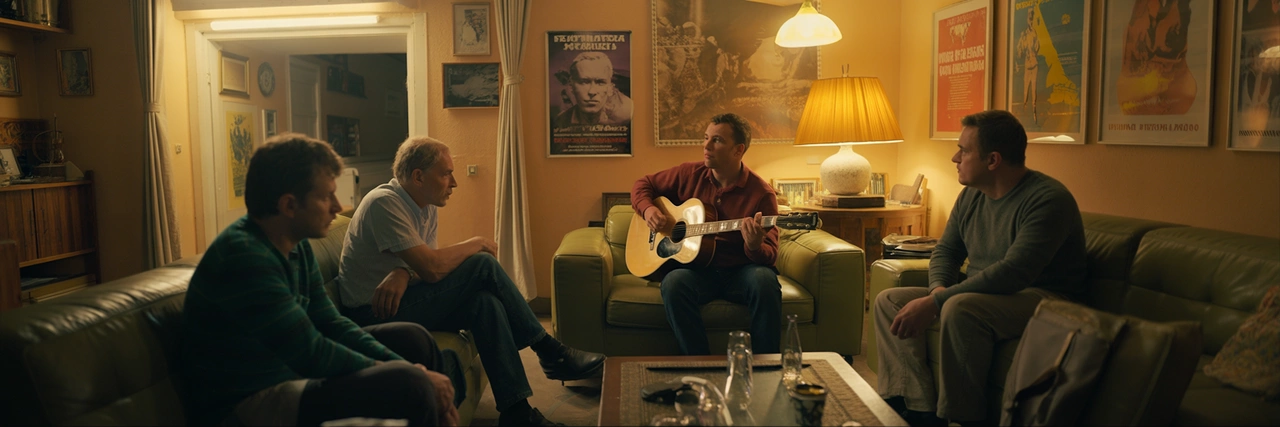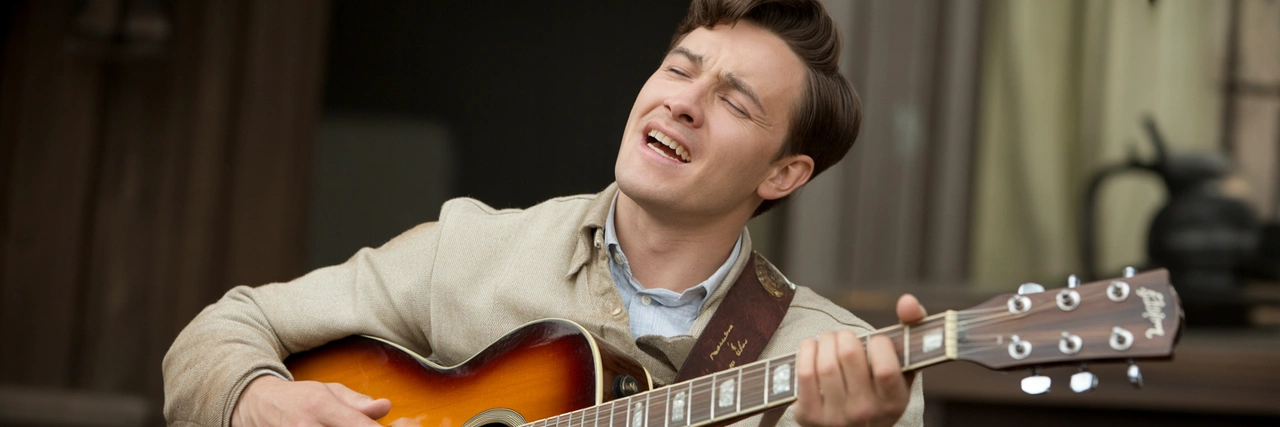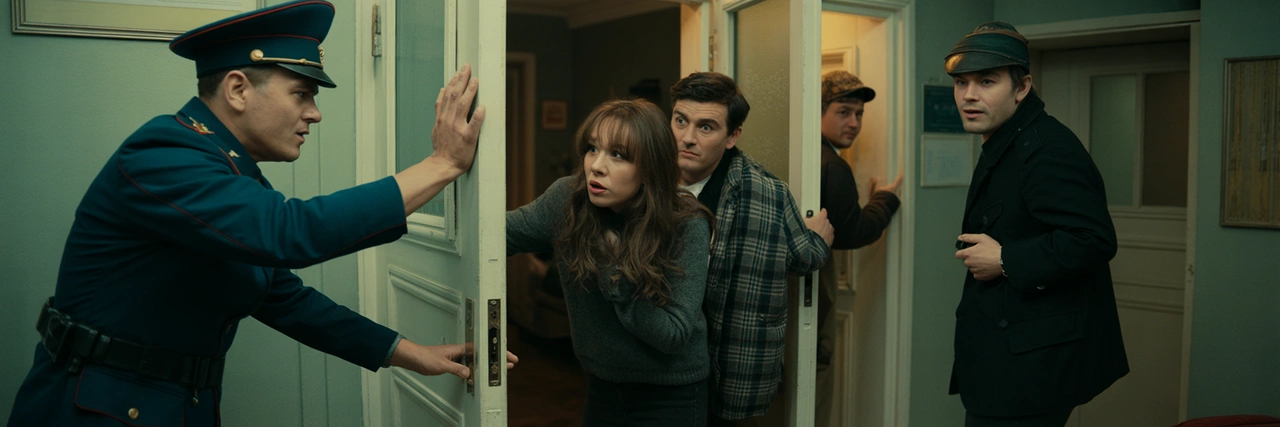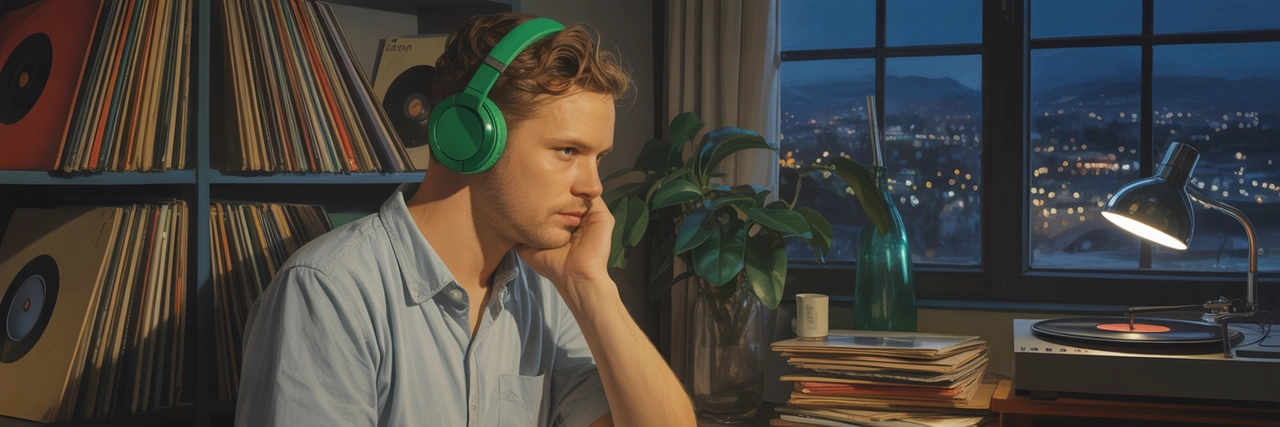Underground Chords: The Soviet Apartment Rock Rebellion
In the USSR, where official stages were guarded by ideology, music found refuge in tiny apartments. These “kvartirniki” — secret gatherings in cramped living rooms — were more than concerts. They were meetings of minds and hearts hungry for freedom.
The walls were thin, voices low, and the fear of being reported was real. But when the first chord was struck on a battered guitar, the room filled with a rebellious pulse. Songs weren’t just melodies; they were lifelines, whispers of a world beyond censorship.

These weren’t just songs — they were poems disguised as music. Bard songs by Yuri Vizbor, Bulat Okudzhava, and underground rockers carried coded messages about longing, despair, hope. Every lyric was layered with meaning, every pause charged with unspoken truths.
Singing was an act of courage. To voice a forbidden thought was to risk everything. Yet, these intimate concerts created a shared space where people dared to dream aloud.

Information traveled by word of mouth. Invitations were whispered in corridors; no posters, no ads. Every new gathering was a small victory against the state’s attempt to silence.
Sometimes the KGB knocked on the door. Sometimes the music stopped abruptly. But the spirit didn’t die. The underground scene thrived in the shadows — in basements, attics, on trains — wherever the melody could sneak.

Today, these songs echo beyond the cramped rooms and quiet streets. They remind us that music can be a shield and a sword — a way to reclaim voice and identity.
Listening now, I feel that same pulse in my veins. The secret gatherings, the whispered verses, the stolen moments of freedom — they weren’t just history. They’re a call. To improvise, resist, and live fully — even in silence.

Close